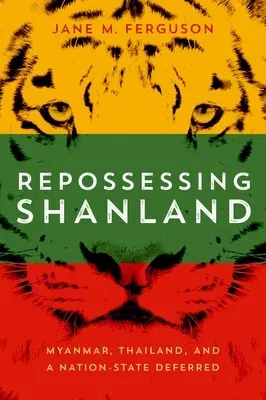Jane M Ferguson
(Author)Repossessing Shanland: Myanmar, Thailand, and a Nation-State DeferredPaperback, 6 September 2022

Qty
1
Turbo
Ships in 2 - 3 days
In Stock
Free Delivery
Cash on Delivery
15 Days
Free Returns
Secure Checkout

Part of Series
New Perspectives in Se Asian Studies
Print Length
320 pages
Language
English
Publisher
University of Wisconsin Press
Date Published
6 Sep 2022
ISBN-10
0299333043
ISBN-13
9780299333041
Description
Product Details
Author:
Book Format:
Paperback
Country of Origin:
US
Date Published:
6 September 2022
Dimensions:
22.61 x
15.19 x
2.01 cm
ISBN-10:
0299333043
ISBN-13:
9780299333041
Language:
English
Pages:
320
Publisher:
Weight:
430.91 gm